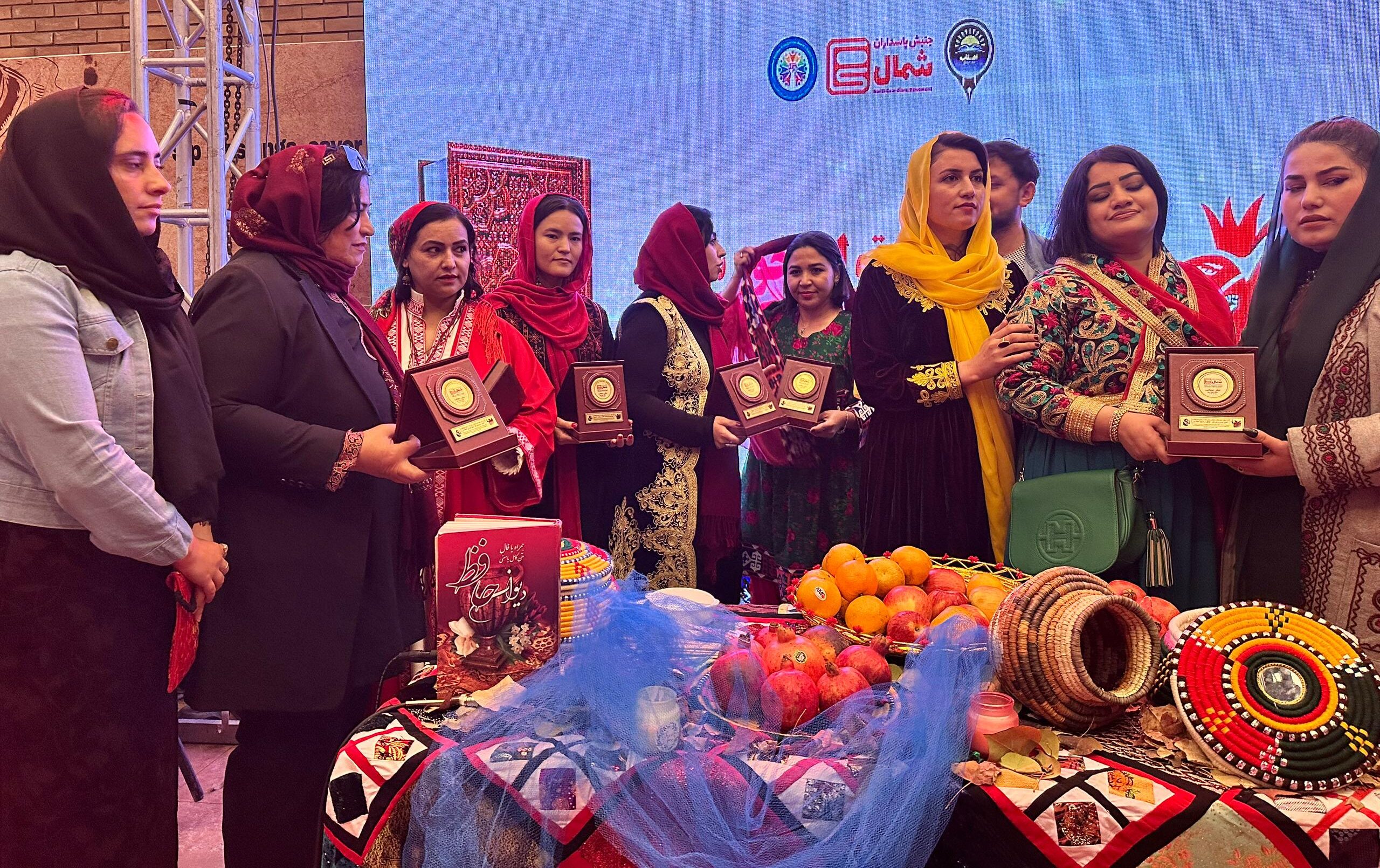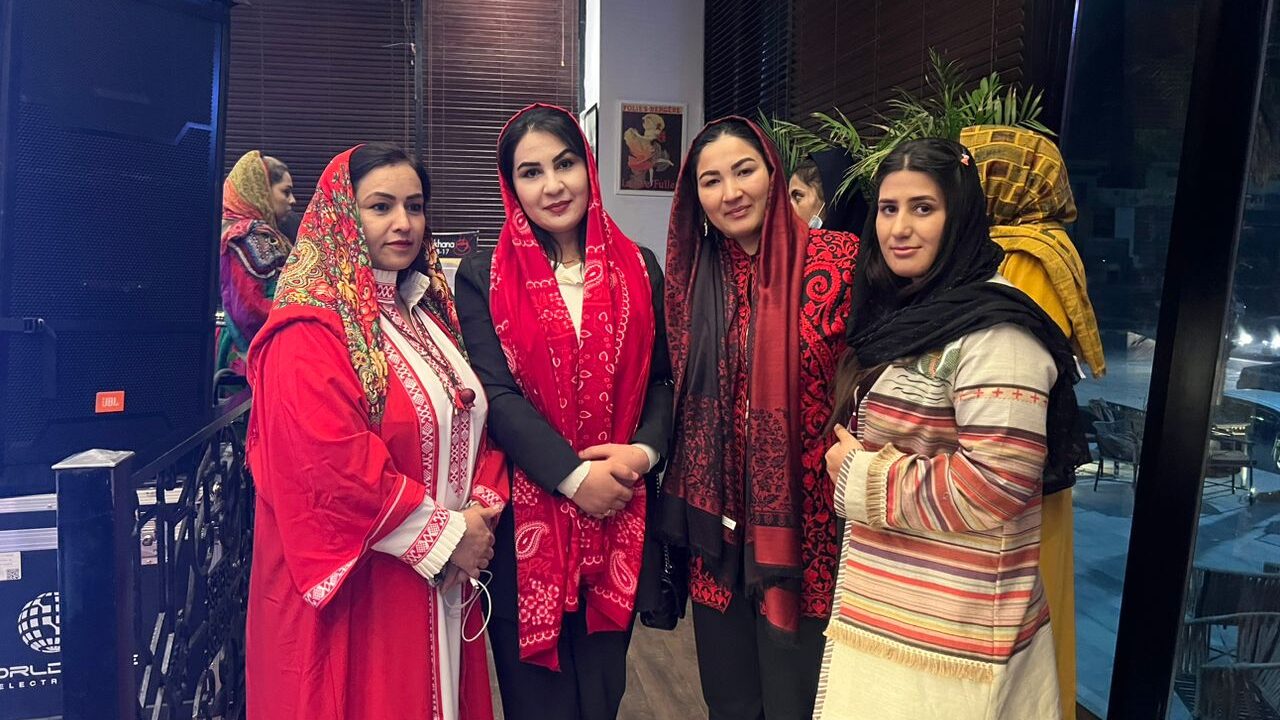Afghan Diaspora Celebrates Yalda in Defiance of Taliban Repression
A community event in Islamabad highlights the resilience of Afghan culture and the enduring fight for women’s rights
[Islamabad] The Afghan diaspora in Islamabad gathered last week to celebrate Shab-e Yalda, or Chella Night, marking the longest night of the year. The event was a poignant display of cultural resilience, particularly significant for Afghan women who have endured imprisonment under the Taliban regime. Their participation underscored the community’s determination to preserve its heritage and identity despite ongoing challenges.
Deeply rooted in ancient Persian traditions, Yalda symbolizes renewal, hope, and the triumph of light over darkness. While closely tied to Persian culture, it is also celebrated by Afghan, Iranian, and Central Asian diaspora communities worldwide. In some regions, it is referred to as “Chellah,” marking the beginning of the 40 coldest days of winter in the Persian calendar.
Since taking control of Afghanistan, the Taliban have imposed sweeping restrictions on cultural and traditional practices. They banned Yalda celebrations, branding the event “haram” and enforcing their interpretation of Islamic law, which forbids such festivities.
The Islamabad celebration took place at a modest community venue and brought together Afghan families and diaspora members. The evening featured traditional Yalda customs, including sharing pomegranates, watermelons, dried fruits, and reciting Persian poetry. Women at the event wore symbolic “handmaid” attire, voicing strong disapproval of the Taliban’s oppressive ideology and its impact on Afghan women.

Afghan women participate in the Yalda Night celebration in Islamabad, Dec. 21, 2024. (Courtesy Syed Qasem Hashmi)
Speakers highlighted how Afghan girls’ lives have been reduced to roles of servitude under the Taliban’s misogynistic rule, depriving them of education, freedoms, and self-expression. Syed Qasem Hashmi, one of the event coordinators, told The Media Line, “The gathering became a rare opportunity for dozens of families living in fear and uncertainty abroad for the past three years to reconnect with their community.”
Such events send a powerful message of solidarity, hope, and resistance to women living under suppression: that you are not forgotten, and your voice matters
Hashmi emphasized, “Such events send a powerful message of solidarity, hope, and resistance to women living under suppression: that you are not forgotten, and your voice matters.” He added that the event was kept low-profile and not advertised in advance due to safety concerns.

Afghan women participate in the Yalda Night celebration in Islamabad, Dec. 21, 2024. (Courtesy Syed Qasem Hashmi)
Afghan women at the event shared their stories of resilience and survival following their release from Taliban captivity. They described ongoing struggles under a regime that has stripped women of basic rights, including education, healthcare, and employment opportunities. Despite these barriers, they continue to advocate for equality and work to empower other women.
Give the gift of hope
We practice what we preach:
accurate, fearless journalism. But we can't do it alone.
- On the ground in Gaza, Syria, Israel, Egypt, Pakistan, and more
- Our program trained more than 100 journalists
- Calling out fake news and reporting real facts
- On the ground in Gaza, Syria, Israel, Egypt, Pakistan, and more
- Our program trained more than 100 journalists
- Calling out fake news and reporting real facts
Join us.
Support The Media Line. Save democracy.
Maria Noori, a leading women’s rights advocate and founder of the Women’s Freedom Light Movement Afghanistan, stressed the critical importance of cultural preservation. “Such gatherings are vital for preserving our rich cultural heritage while also creating opportunities for joy and togetherness,” she told The Media Line.
Noori, who herself endured imprisonment by the Kabul police in 2023, noted that the Taliban’s rule has systematically erased women’s contributions to Afghan society. “The rich tapestry of women’s artistic, educational, and intellectual achievements has been stifled, leaving our cultural heritage under constant threat of erasure,” she said.
These celebrations show that no regime can extinguish our culture’s vitality and timelessness
She added, “These celebrations show that no regime can extinguish our culture’s vitality and timelessness. Afghans honor their identity wherever they are.”
Sara Latifi, another women’s rights advocate who was imprisoned for her activism, highlighted Yalda’s unifying power. “Yalda stands as a testament to the unity and originality of Persian speakers worldwide, honoring the poets, philosophers, and thinkers who shaped our civilization,” she told The Media Line.
Latifi noted that celebrating Yalda in exile inspires solidarity and hope among Afghan women. “We, as heirs to a legacy of greatness, bear the responsibility of defending this heritage against the Taliban’s oppressive ideology, which seeks to erase Afghanistan’s centuries-old traditions and values,” she said.
Razia Ahmadi, who spent months imprisoned for her activism, told The Media Line, “They silenced us in Kabul, but they cannot silence us here.” She described the trauma of captivity and the lasting impact it has had on her family. “Even in exile, we hold on to each other and hope to return to a free Afghanistan,” she said.
Ahmadi reflected on Yalda’s symbolic importance, adding, “The longest night reminds us that even the darkest nights eventually give way to light. I believe the oppressive darkness overshadowing Afghan women will soon be replaced by a brighter future.”
The longest night reminds us that even the darkest nights eventually give way to light
Fatima Hashmi, another victim of Taliban oppression, emphasized that the denial of education, work, and freedom of expression remains Afghan women’s greatest challenge. She called for collective resistance and international advocacy to overcome these barriers.
“These gatherings directly challenge oppressive regimes,” she told The Media Line. “They showcase resilience, reminding oppressors that Afghan women remain united and unbroken.”

Afghan women participate in the Yalda Night celebration in Islamabad, Dec. 21, 2024. (Courtesy Syed Qasem Hashmi)
Dr. Naim Asas, a Paris-based Afghan expert and director at the Group for International Studies and Reflections in Social Sciences, told The Media Line that Yalda symbolizes resistance to cultural erasure. “These celebrations preserve Afghan culture, poetry, and values, ensuring their survival across generations despite displacement,” he said.
He added, “The presence of formerly imprisoned women at such gatherings represents defiance and hope, affirming their voices and cultural significance even in exile. Their courage reminds those in Afghanistan that darkness fades, and Afghan womanhood endures with dignity and resistance.”
Asas called on the international community to support Afghan women by prioritizing their rights in diplomacy, amplifying their voices, providing financial and educational aid, and applying targeted sanctions on the Taliban while ensuring humanitarian support reaches women and children.



